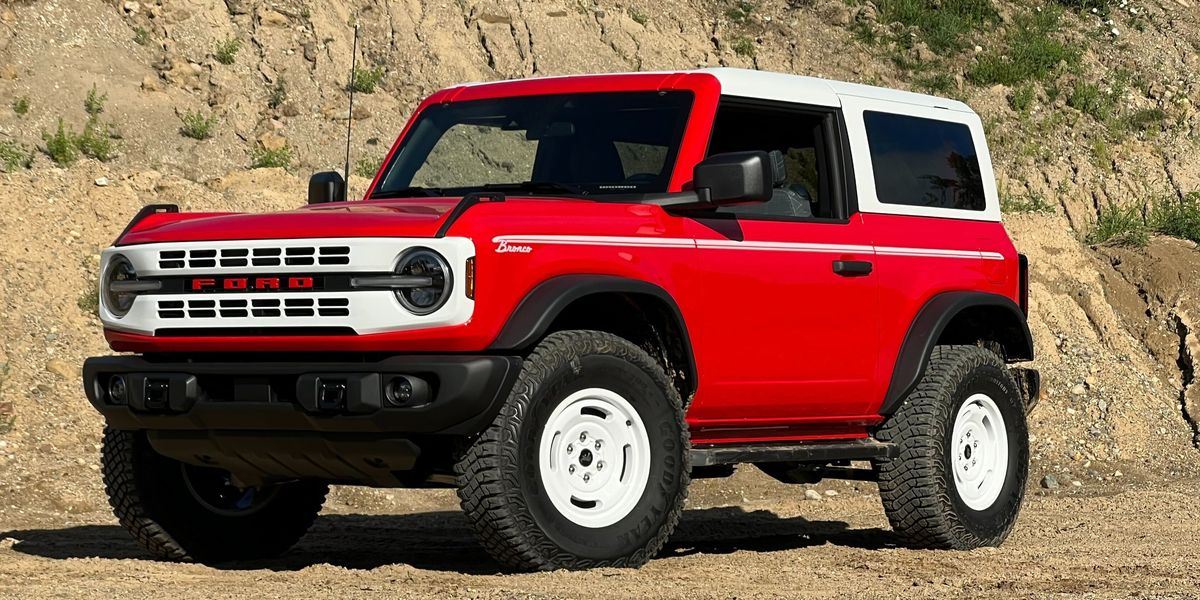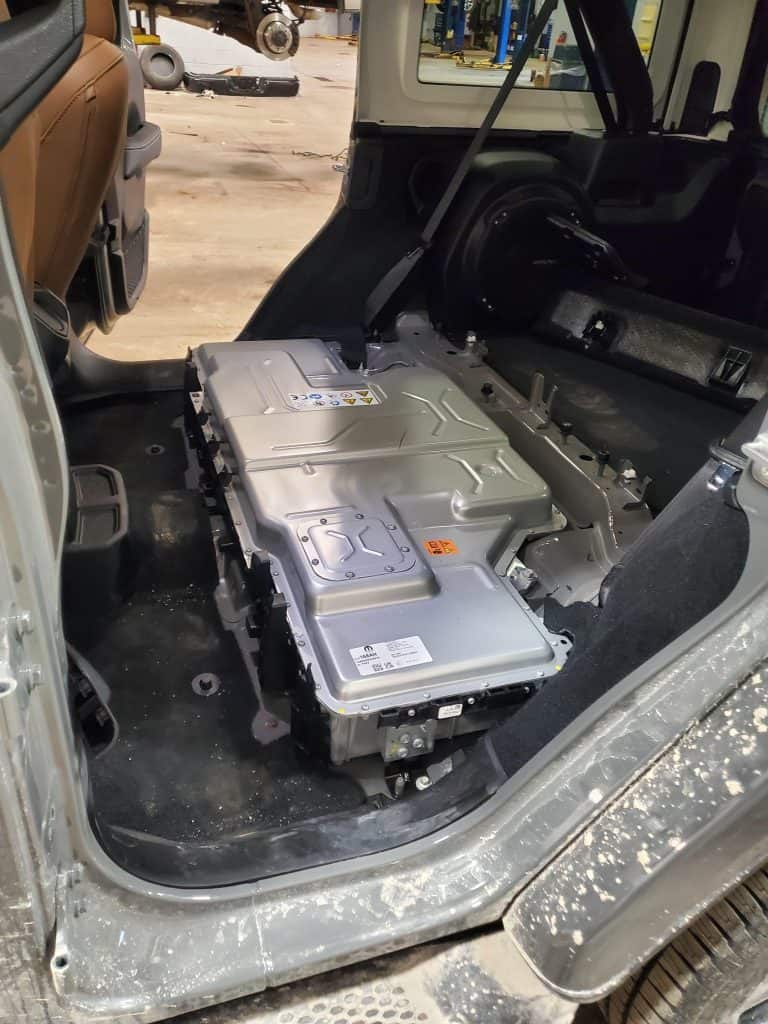Troubleshooting Jeep 3.2 Engine Problems: A Comprehensive Guide
The jeep 3.2 engine has had some significant problems. The issues involve excessive oil consumption, engine stalling, and engine misfire.
The jeep 3. 2 engine was first introduced in 2012 and was used in a range of jeep models until 2018. It is a v6 engine that was designed to provide better fuel economy while still delivering enough power to drive a jeep through the toughest terrains.
However, over the years, some major problems have emerged, affecting the engine’s durability and performance. Excessive oil consumption, engine stalling, and engine misfire were the most common issues reported in the jeep 3. 2 engine. In this article, we will discuss these problems, their causes, and how to fix them. We will also look at some of the best preventive measures to help keep your jeep 3. 2 engine running smoothly for years to come.

Credit: www.amazon.com
Identifying Engine Problems
Symptoms Of Engine Problems
If your jeep 3. 2 engine is experiencing any problems, it is important to identify the symptoms quickly. Here are some signs that indicate engine problems:
- Loss of power during acceleration
- Rough idling or stalling
- A decrease in fuel efficiency
- Unusual noises such as knocking or ticking
- Smoke from the exhaust pipe
- An illuminated check engine light
Diagnosing Engine Problems
Once you have identified the symptoms, it’s time to diagnose the issue. Here’s what you need to do:
- Check the air filter and replace it if it’s dirty or clogged.
- Inspect the spark plugs and wires to ensure they are in good condition.
- Check for any vacuum leaks.
- Inspect the fuel injectors to ensure they are not clogged.
- Check the battery and alternator to ensure they are in good working condition.
- Inspect the oil and transmission fluid levels.
Diagnostic Tools For Engine Troubleshooting
To make your job easier, use diagnostic tools to troubleshoot engine problems. Here are a few tools that can help:
- Code reader: Your jeep 3.2 engine has an onboard computer that stores codes to help diagnose issues. A code reader can read these codes and tell you what’s wrong with your engine.
- Compression gauge: This tool can help you determine if there are any compression issues within the engine.
- Fuel pressure gauge: This tool can help you check if there are any fuel system problems.
- Vacuum gauge: Use this tool to identify if there are any vacuum leaks in the engine.
By identifying the symptoms, diagnosing the problem, and using diagnostic tools, you can identify and fix your jeep 3. 2 engine problems quickly and effectively.
Common Jeep 3.2 Engine Problems
Jeep 3. 2 engines are known for their reliability and durability. However, every machine has its weaknesses. In this section, we’ll discuss some common jeep 3. 2 engine problems to help you identify and address them before they become major concerns.
Leaking Oil
One of the most common issues with the jeep 3. 2 engine is oil leaks. This can happen for several reasons, including:
- Faulty oil gasket: The oil gasket can wear out over time, causing oil to leak.
- Loose or broken oil pan bolts: Loose or damaged bolts can cause the oil pan to separate from the engine block, leading to oil leaks.
- Worn out valve cover gasket: The valve cover gasket is responsible for sealing the engine’s valve cover. If the gasket is worn out, the engine oil can leak out.
Overheating Engine
Overheating is another common jeep 3. 2 engine problem that can occur due to several reasons like:
- Low coolant level: A low level of coolant in the engine can cause it to overheat.
- Faulty thermostat: If the engine thermostat is faulty, it can cause the engine to overheat.
- Damaged water pump: A damaged or broken water pump can prevent adequate circulation of the engine coolant, leading to overheating.
Engine Misfires
If your jeep 3. 2 engine is misfiring, it can cause various symptoms like poor acceleration, rough running engine and engine light. The most common causes of engine misfire are:
- Faulty ignition coils: Worn-out ignition coils can cause misfire due to inadequate electrical current to spark plugs.
- Damaged spark plugs: Over time, spark plugs can get damaged due to normal wear and tear which can result in misfires.
- Low fuel pressure: Poor fuel pressure can cause misfires as the engine is not receiving enough fuel.
Timing Chain Problems
The timing chain is a vital component of the engine that synchronizes the operation of the valves and pistons. Over time, it can wear out, causing several issues such as:
- Engine misfires: Timing chain wear can cause the engine timing to be off, resulting in misfires and other problems.
- Rough engine idle: Worn-out timing chains can cause the engine to vibrate, leading to rough idling.
- Noisy engine: A worn-out timing chain can cause rattling and whining noises from the engine.
Exhaust Issues
Jeep 3. 2 engines are susceptible to various types of exhaust-related problems. The most common ones are:
- Rust and holes: Rust and holes can develop in the exhaust pipes due to corrosion or damage.
- Leaks: Exhaust system leaks can occur due to damaged or worn-out exhaust gaskets.
- Catalytic converter failure: The catalytic converter can fail due to overheating or damage, causing poor engine performance.
We hope this section has given you a better idea of some common jeep 3. 2 engine problems. Remember, proactive maintenance can prevent these issues from becoming major concerns. If you notice any of these problems, consider consulting with a qualified mechanic.
Troubleshooting Specific Engine Problems
Jeep 3.2 Engine Problems: Troubleshooting Specific Engine Problems
When it comes to owning a jeep 3. 2 engine, there are several engine problems that you might come across in your journey. Identifying and fixing these problems is essential to ensure that your engine operates smoothly. Below, we will highlight some common engine problems and provide solutions to help you troubleshoot them.
Addressing Oil Leaks
Oil leaks are a common issue that affects the jeep 3. 2 engine. Some of the probable causes of oil leaks include damaged oil seals, faulty gaskets, or a cracked engine block. Here are some key points to help you address oil leaks:
- Check under your vehicle for signs of oil puddles
- Identify the source of the leak by locating the oil trail
- Replace the damaged parts or gaskets to eliminate the oil leaks
Resolving Overheating Issues
Another common issue with the jeep 3. 2 engine is overheating. Overheating can lead to significant engine damage if left unaddressed. Some of the causes of engine overheating include low coolant levels, a malfunctioning thermostat, or a faulty water pump.
Here are some key points to help you resolve engine overheating issues:
- Check your coolant levels and refill if low
- Inspect the thermostat and water pump for functioning
- Ensure proper airflow through the radiator
Fixing Engine Misfires
A misfiring engine can cause your jeep 3. 2 engine to stall, idle roughly, or burn more fuel than usual. Several things can cause an engine misfire, including worn-out spark plugs, a malfunctioning ignition coil, or a faulty fuel injector.
Here are some key points to help you fix engine misfires:
- Use a diagnostic tool to identify the root cause of the misfire
- Replace the parts causing the misfire
- Regularly maintain your spark plugs and ignition coils to prevent further misfires
Repairing Timing Chain Problems
The timing chain is the component that ensures that the engine’s valves and pistons work together in synchronization. A malfunctioning timing chain can lead to significant engine damage if not addressed on time. Here are some key points to help you repair timing chain problems:
- Notice if the engine has a rattling or ticking sound
- Consult a mechanic for an inspection
- Replace the timing chain and related components if necessary
Resolving Exhaust Issues
Exhaust issues can cause the jeep 3. 2 engine to be noisy, underperform, or even release toxic emissions. Exhaust issues can be caused by a faulty muffler, worn-out or damaged exhaust pipes, or a faulty catalytic converter. Here are some key points to help you resolve exhaust issues:
- Listen for any abnormal sounds or leaks in the exhaust system
- Inspect the exhaust pipes for any damage or rust
- Replace the weak or missing parts
Identifying and fixing engine problems in your jeep 3. 2 is crucial to ensure the vehicle operates smoothly and efficiently. Regular maintenance, inspections, and timely replacements of engines parts can save you significant repair costs.
Preventative Measures For Jeep 3.2 Engine Problems
If you own a jeep with a 3. 2-liter engine, it’s important to take preventative measures to keep your vehicle in good condition. Regular maintenance and addressing issues as soon as they arise are crucial to preventing major and expensive problems down the road.
Here are some key preventative measures:
Regular Oil Changes
- Change the oil every 3,000 to 5,000 miles. This will help keep the engine lubricated, clean, and running smoothly.
- Use quality oil that meets the manufacturer’s recommendations. Synthetic oil may be a good option for longer-lasting protection.
- Regular oil changes can help prevent common engine problems such as overheating, poor performance, and engine failure.
Proper Maintenance Of Engine Components
- Have the engine components, including the spark plugs, air filter, and fuel filter, checked regularly, and replaced as needed.
- Follow the manufacturer’s recommended maintenance schedule for your jeep’s engine.
- Regular maintenance can help prevent problems with the engine’s components, which are all interconnected and affect the engine’s performance.
Addressing Issues As Soon As They Arise
- If you notice any strange noises, leaks, or smells coming from your jeep’s engine, have it checked by a professional mechanic right away.
- Do not ignore any warning lights on your dashboard.
- Addressing issues as soon as they arise can prevent further damage to the engine and save you money in repairs down the line.
Importance Of Hiring A Professional For Complex Engine Problems
- If you’re experiencing complex engine problems, such as engine misfires, stalling, or poor acceleration, it’s important to hire a professional mechanic.
- Work with a mechanic who is experienced with jeep engines, as they will have a better understanding of common problems and how to fix them.
- Tackling complex engine problems on your own can lead to further damage, and trying to save money on repairs may ultimately cost you more.
By following these preventative measures for your jeep’s 3. 2 engine, you can keep your vehicle running smoothly and extend its lifespan. Remember to perform regular oil changes, properly maintain engine components, and address any issues as soon as they arise.
When it comes to complex engine problems, seek help from a professional mechanic who can provide the expertise and experience necessary for a successful repair.
Frequently Asked Questions Of Jeep 3.2 Engine Problems
What Problems Does The Jeep 3.2 Engine Have?
The jeep 3. 2 engine may experience oil leaks, camshaft failure, and engine stalling.
What Causes Oil Leaks In The Jeep 3.2 Engine?
Oil leaks in the jeep 3. 2 engine can be caused by faulty gaskets, seals, or the oil pressure switch.
Why Does The Jeep 3.2 Engine Stall?
The jeep 3. 2 engine may stall due to a faulty crankshaft sensor, fuel pump, or the pcm.
How Can Camshaft Failure Be Prevented In The Jeep 3.2 Engine?
To prevent camshaft failure in the jeep 3. 2 engine, ensure regular oil changes and proper maintenance.
Is The Jeep 3.2 Engine Reliable?
While the jeep 3. 2 engine has had its share of problems, with proper maintenance, it can be reliable for many years.
Conclusion
The jeep 3. 2 engine problems have been a matter of concern among jeep enthusiasts. From oil consumption to engine stalling, there are numerous issues associated with this engine model. However, it is not all doom and gloom. The good news is that with the right maintenance and care, these problems can be mitigated, and your jeep can continue to provide top-notch performance.
Regular oil changes, proper air filter maintenance, and routine inspection can help prevent some of the major issues associated with this engine model. If you have experienced any of these problems, it is always advisable to seek professional help. While jeep 3.
2 engine problems exist, they can be overcome with proper care and maintenance. So, if you’re a jeep owner, remember that preventive maintenance is the key to avoiding engine problems.



